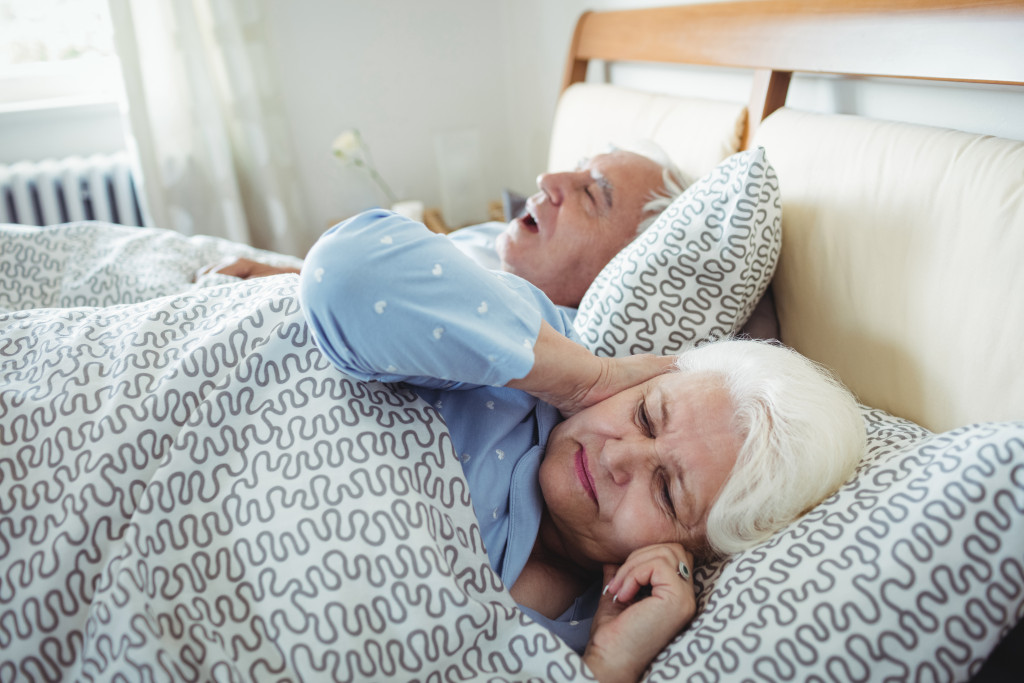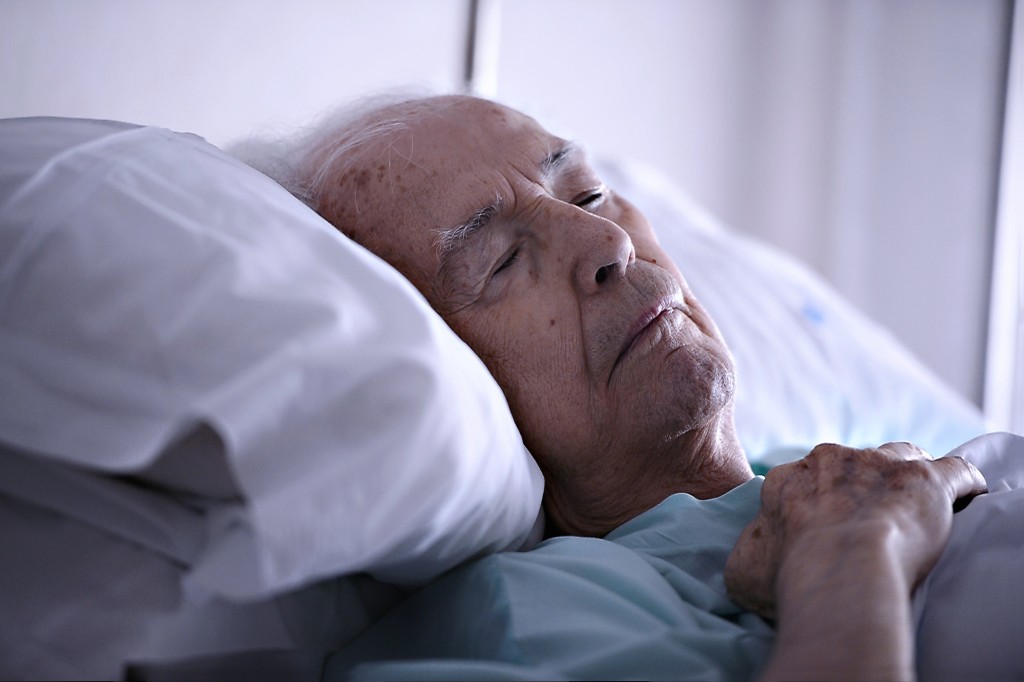Sleeplessness sometimes goes hand in hand with aging. As people grow older, the need to get adequate amounts of sleep increases but their ability to fall asleep or stay asleep for the recommended duration decreases.
Older adults need seven to nine hours of sleep every night, just like young people. The belief that they can sleep less is not real and can actually be dangerous to the health of the elderly population.
Why Older Adults Cannot Sleep
The link between sleeplessness and aging has to do with the changes that the body goes through over time. The body’s internal clock, which controls sleeping and waking cycles, is affected.
Two factors disrupt the body’s internal clock.
The first is an aging suprachiasmatic nucleus, or SCN, which is responsible for your circadian rhythm. The SCN, along with every part of the body, including the brain, ages, too. It deteriorates, which will have an influence on when a person feels tired or when they should be alert.
The other factor that makes your internal clock go haywire is the levels of melatonin and cortisol in the body. These hormones play an important role in making you fall asleep at night and keeping you up during the day. The body naturally produces melatonin in response to darkness or night-time but, with age, you release less of it, leading to sleeplessness. On the other hand, cortisol is associated with stress, something that most adults experience frequently.
There are a couple of ways to address these issues. Older adults should soak up the sunlight for up to an hour every day, which can recalibrate your internal clock and increase the secretion of melatonin in your body later at night.
Environmental Factors that Affect Sleep
 But, aside from aging, environmental factors may also harm a senior’s sleep. Noises can obviously jolt a person awake. If their rooms or granny flats have thin walls and no soundproofing, outdoor sounds such as car horns and police sirens can wake them up in the middle of the night and then prevent them from falling back asleep.
But, aside from aging, environmental factors may also harm a senior’s sleep. Noises can obviously jolt a person awake. If their rooms or granny flats have thin walls and no soundproofing, outdoor sounds such as car horns and police sirens can wake them up in the middle of the night and then prevent them from falling back asleep.
The quality of mattresses matters, too. Seniors require mattresses that support the body’s weight and help them fall asleep and stay asleep. Old mattresses need to be replaced, especially if they have been in use for more than a decade. Aside from uncomfortable, old mattresses can no longer support the body. Your elderly loved one may wake up in the morning feeling more tired and suffering from body aches.
Also, reconsider the lighting in their room. Bulbs that mimic daytime brightness will make the brain think that it is not the time for bed yet. It will disrupt the body’s circadian rhythm and lead to difficulty sleeping. Smart bulbs can allow you to adjust the brightness and colour of the light in the bedroom. Through a smartphone or a tablet, you can make the light grow dimmer as you get closer to bedtime.
What if it is Something Else?
Sleeplessness is a common symptom of many illnesses. In one study involving seniors in Singapore, researchers found that trouble sleeping was reported among those with existing medical conditions.
These medical conditions include chronic pain such as arthritis, cardiovascular disease, Parkinson’s disease, Alzheimer’s disease, neurological conditions, respiratory conditions, and gastrointestinal conditions.
Those who are taking medications to treat illnesses may also experience sleeplessness. The common medications that older adults take and affect sleep are H2 blockers (for GERD), anticholinergics (for COPD), antihypertensive drugs and diuretics (for high blood pressure), and corticosteroids for rheumatoid arthritis.
Seniors may also experience sleep disorders. Sleep apnea, which causes momentary pauses in breathing, leads to shallow sleep and frequent waking at night. Restless leg syndrome, or RLS, is characterised by an overwhelming urge to move one’s legs.
Consequences of Sleeplessness
Not getting enough sleep can exacerbate existing medical conditions and lead to serious illnesses.
Short-term, it may cause daytime drowsiness, which endangers an elderly loved one’s safety. They may sustain injuries from falls, for example.
It can also lead to a weakened immune system and an increased risk of diabetes, obesity, heart attack, and stroke. Previous research has also linked sleeplessness with Alzheimer’s disease.
Sleep is precious. It is the body’s way of recharging after a hectic day. It is the time for the body to repair itself, too, from all the damages it sustained from working, doing chores, hanging out with people, etc. So, it is bad news when people, especially if they are older, cannot get enough sleep every night. They cannot gain the benefits of sleep, which may lead to certain medical conditions in the future.

